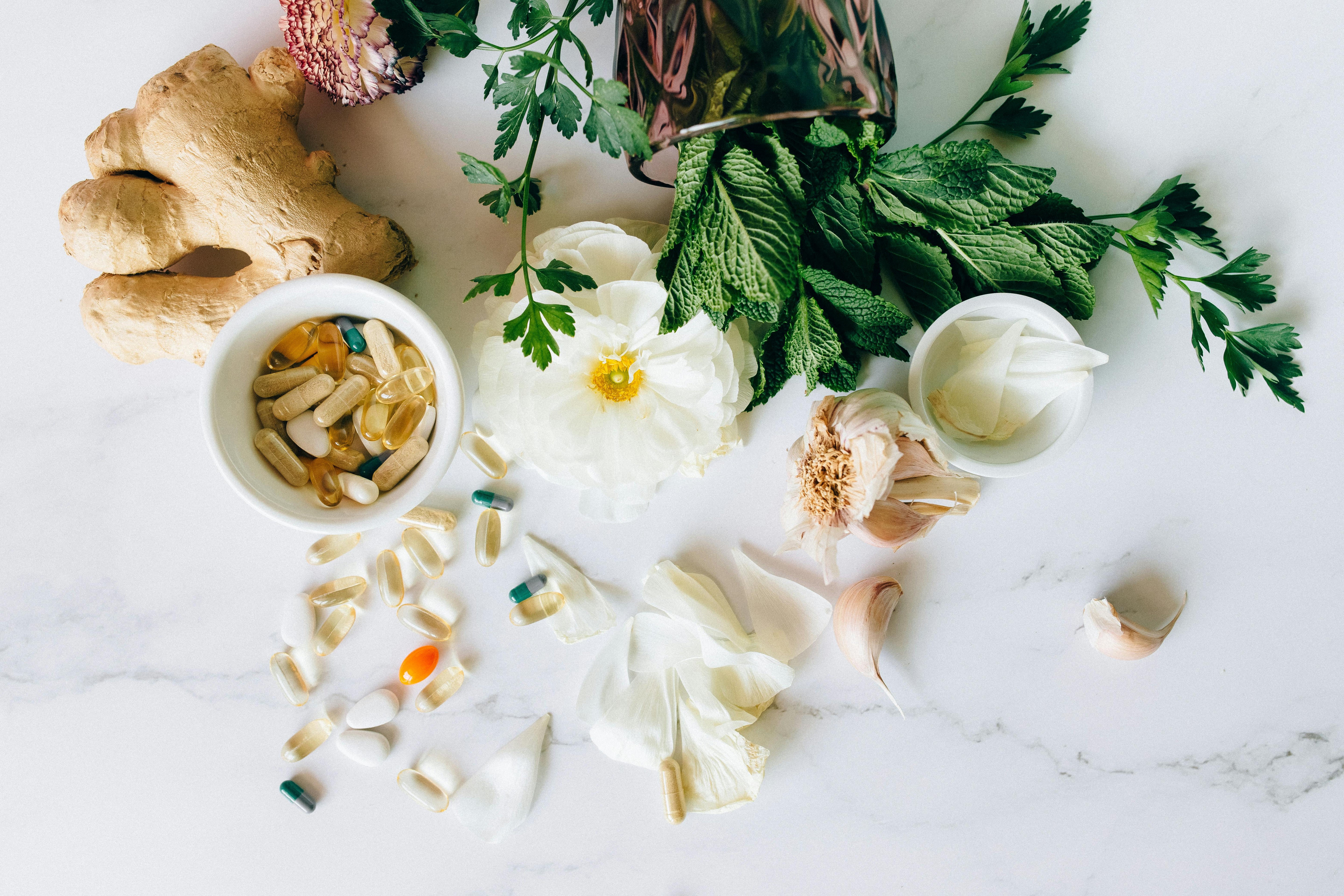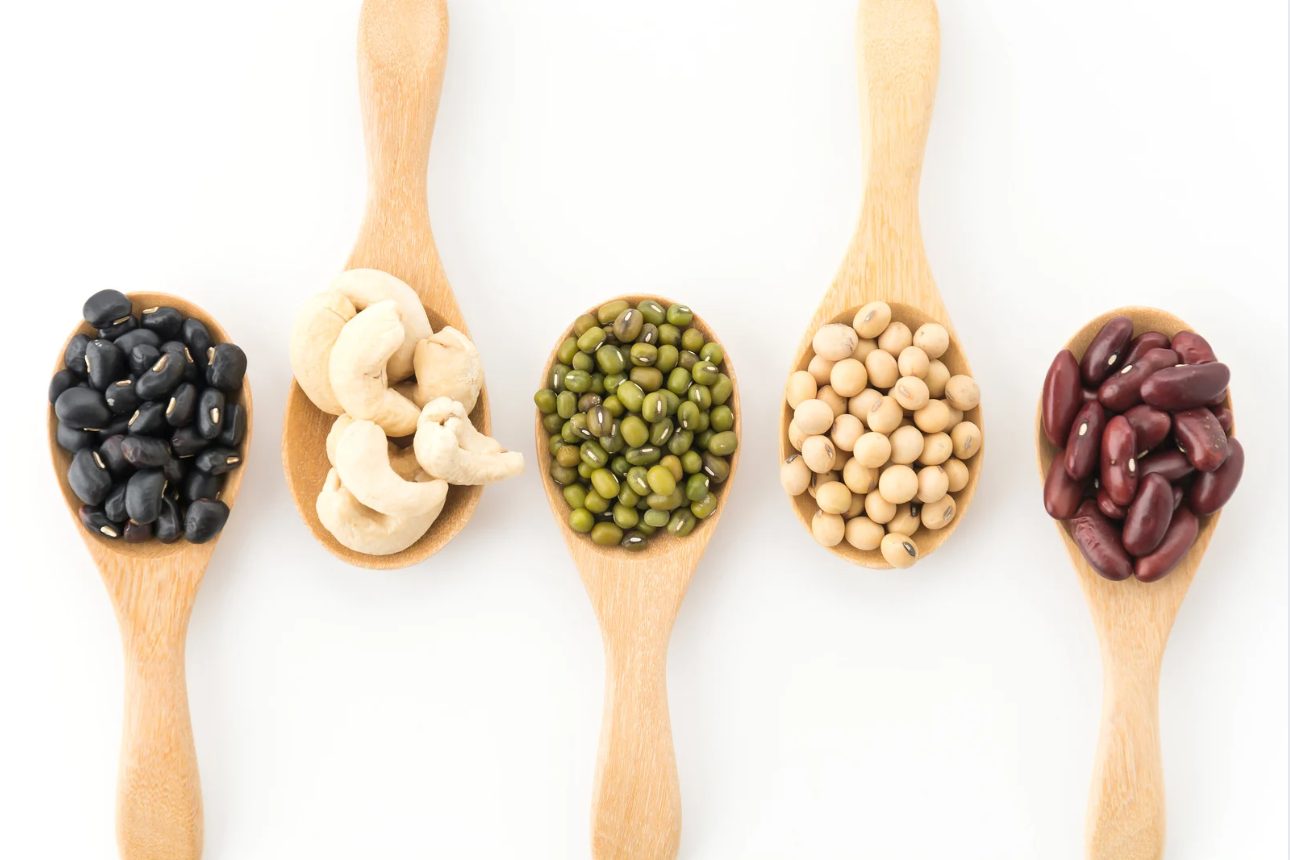What is PCOS Belly? How to Reduce Hormonal Belly Fat and Bloating Naturally
If you’ve ever wondered why your belly seems to “do its own thing” despite your best efforts—bloating, puffiness, or stubborn fat that won’t budge—you’re not alone.
For many women with Polycystic Ovary Syndrome (PCOS), abdominal weight gain is more than just a cosmetic concern—it’s a complex combination of hormones, inflammation, and insulin dynamics.
In this blog, we break down what the term “PCOS belly” really means, why it happens, and what you can do (without falling into toxic diet culture) to support your body in a gentle, science-backed way.
What Is PCOS?
Polycystic Ovary Syndrome (PCOS) is a common hormonal condition that affects up to 1 in 10 women of reproductive age, though in Australia, many cases still go undiagnosed.
PCOS is characterised by:
-
Irregular or missing menstrual cycles
-
Elevated levels of androgens (male hormones like testosterone)
-
Ovarian cysts or a “polycystic” appearance on ultrasound
-
Metabolic symptoms such as insulin resistance and weight gain
Women with PCOS may experience a range of symptoms, including:
-
Irregular periods or no periods at all
-
Acne or oily skin
-
Excess hair growth on the face or body (hirsutism)
-
Hair thinning or scalp hair loss
-
Fertility challenges
-
Weight gain, especially around the stomach
-
Fatigue, cravings, or mood swings
PCOS is a spectrum condition, meaning it looks different in every woman. You don’t have to have all the symptoms to be diagnosed.
Health Risks Linked to PCOS
Beyond its physical symptoms, PCOS is associated with several longer-term health risks, especially if left unmanaged:
-
Type 2 diabetes (up to 40% of women with PCOS develop it), "PCOS belly" can be a good risk factor for this due to the shared insulin resistance root cause.
-
High blood pressure and cardiovascular disease
-
Sleep apnoea and chronic fatigue
-
Endometrial hyperplasia or cancer (due to irregular shedding of the uterine lining)
-
Mental health issues, including anxiety, depression, and body image distress
This is why early diagnosis, proactive management, and personalised support are so important.
What Is “PCOS Belly,” Exactly?
One of the most common concerns among women with PCOS is abdominal fat gain—often described as the “PCOS belly.” Unlike general weight gain, PCOS-related belly fat tends to be visceral, meaning it surrounds your internal organs and increases the risk of metabolic complications.
This type of fat is often stubborn and doesn't respond well to restrictive diets or excessive cardio. It’s also frequently accompanied by bloating, inflammation, and digestive discomfort, adding both physical and emotional distress.
“PCOS belly” is not a medical term, but a phrase used by many women to describe a frustrating combination of:
-
Lower belly fat that is hard to lose
-
Frequent bloating or puffiness (especially mid-cycle or after eating)
-
A feeling that your body is working against you, no matter how “healthy” you try to be
This belly pattern isn’t just about weight. For many, it’s an emotional experience—tied to body image, comfort, fertility concerns, and a sense of control.
Why Does PCOS Belly Happen?
1. Insulin Resistance
Over 70% of women with PCOS have some level of insulin resistance—even if they’re not overweight. This means their cells don’t respond well to insulin, causing the body to produce even more of it.
High insulin = more fat storage (especially around the belly).
Insulin also stimulates androgen (male hormone) production, which further promotes abdominal fat and disrupts ovulation.
Real Talk: You might be eating well, exercising, and still struggling with belly weight. It’s not a failure—it’s physiology.
2. Hormonal Imbalances
PCOS is characterized by elevated androgens (like testosterone), which shift how your body stores fat. While people without PCOS may carry more weight around the hips and thighs, those with PCOS are more likely to store fat in the abdominal region—a pattern associated with higher health risks, including metabolic syndrome.
This apple-shaped pattern also makes weight loss more challenging, especially when estrogen and progesterone levels are imbalanced.
3. Chronic Inflammation
PCOS is considered a condition characterised by low-grade inflammation. Chronic inflammation increases cortisol (your stress hormone), interferes with insulin sensitivity, and makes the body more likely to store visceral fat.
Signs you may be dealing with inflammation:
-
Puffiness or water retention
-
Fatigue that isn’t improved by rest
-
Brain fog, joint pain, or skin flares (like acne)
4. Gut Health & Bloating
Not all “PCOS belly” is fat. Bloating and digestive issues are often part of the picture.
Gut dysbiosis (an imbalance in gut bacteria), slow digestion, and food sensitivities can all contribute to:
-
A belly that feels firm or distended after meals
-
Gas, discomfort, or irregular bowel movements
-
Abdominal pain during ovulation or your period
A study shows that women with PCOS experience a higher chance of getting IBS at the same time. Up to 40% of women with PCOS may also meet the criteria for IBS, particularly IBS-D (diarrhoea predominant) or IBS-M (mixed type). The hormonal fluctuations and stress that often come with PCOS can worsen IBS symptoms, creating a frustrating cycle of discomfort and bloating.
If you suspect both PCOS and IBS, a Low FODMAP diet may help—but it’s best done with a dietitian to avoid nutrient gaps.
And if you’ve ever noticed your bloating changes daily or fluctuates throughout your cycle—yes, that’s a real thing too.

Is It Fat, Bloating, or Inflammation?
| Feature | Belly Fat | Bloating | Inflammation |
|---|---|---|---|
| Feels like | Persistent, soft or firm | Temporary, tight or swollen | Puffy, swollen, fluid-like |
| Triggers | Insulin, hormones | Food, cycle phase, gut health | Stress, poor sleep, sugar |
| Changes Daily | No | Yes | Sometimes |
You might be dealing with more than one type at a time, which is why quick-fix solutions rarely work long-term.
7 Ways to Gently Support PCOS Belly
Let’s be clear: this isn’t about chasing a flat stomach. It’s about feeling lighter, more balanced, and less controlled by symptoms. Here's how to begin:
1. Stabilise Blood Sugar with Balanced Meals
Build each meal around:
-
Protein (eggs, fish, tofu, Greek yogurt)
-
Healthy fats (avocado, olive oil, nuts)
-
Fibre-rich carbs (quinoa, legumes, sweet potato, berries)
🥗 Example Meal: Grilled salmon + quinoa + spinach + tahini dressing
These combinations reduce blood sugar spikes, lower insulin, and reduce cravings—key to reducing abdominal fat over time.
2. Inositol Supplements for Insulin Resistance
Myo-inositol and D-chiro-inositol, particularly in the 40:1 ratio found in Inositol Plus, have been shown to:
-
Improve insulin sensitivity
-
Lower androgen levels
-
Regulate periods
-
Support fat loss (especially belly fat)
🧡 Try it if you’re dealing with irregular cycles, fatigue, or sugar cravings.
3. Move in a Way That Supports Metabolism
You don’t have to hit the gym 6 days a week. In fact, overexercising can increase cortisol and backfire for PCOS.
Start with:
-
3x strength training (bodyweight, bands, or weights)
-
2–3x low-impact cardio (brisk walking, swimming, Pilates)
-
Daily movement snacks (stretching, dancing, stairs)
Movement is not punishment—it’s hormone therapy. You should focus on stimulating your muscles and increasing your insulin sensitivity rather than on how many calories you burn. This will be a more sustainable way to stay active.
4. Reduce Inflammation with an Anti-Inflammatory Diet
Focus on foods that calm, not inflame:
-
Berries, leafy greens, fatty fish (salmon, sardines)
-
Herbs like turmeric and ginger
-
Swap processed snacks for nuts or dark chocolate
Consider supporting with:
-
Omega-3s
-
Vitamin D (often low in women with PCOS)
-
Curcumin or turmeric supplements
5. Address Gut Health for Less Bloating
-
Add fermented foods: yogurt, kefir, sauerkraut
-
Eat prebiotic fibres: oats, onions, garlic, bananas
-
Stay hydrated and chew slowly
-
If symptoms persist, speak to a dietitian about testing for SIBO or food intolerances
Note: Fibre can help or hurt depending on your gut health—go slow and individualise. A high fibre diet might help people with slow bowel motion or those struggling with constipation. However, if you have a condition of food intolerance of IBS (irritable bowel syndrome), it will be better to consult a dietitian to find out what is triggering that chronic bloating.
6. Manage Stress Like It’s Medicine
Chronic stress = more cortisol = more belly fat.
Try:
-
10 minutes of deep breathing or yoga each day
-
Phone-free wind-down routine at night
-
Journaling or walking meditations
And please—prioritise sleep. 7–9 hours a night can improve insulin, hunger hormones, and mood dramatically. This helps with managing your cortisol level and fat metabolism the next day.
7. Work With (Not Against) Your Cycle
Track your cycle and learn your patterns. You may notice:
-
Bloating mid-cycle (ovulation)
-
Increased cravings before your period
-
Better energy and digestion in your follicular phase
Cycle awareness helps you work with your body, not push through what it’s resisting. It is normal to feel a bit more bloated before, during or after or period. Do not panic if you experience this. Usually, this kind of bloating will go away when your period finishes.
Final Thoughts: You’re Not Broken. Your Body Just Needs Support.
There’s nothing wrong with you for having a PCOS belly. It’s not about “trying harder”—it’s about trying differently.
When we shift from control and punishment to compassion and support, everything changes. You don’t have to do it all at once. Start small. Be consistent. Let your body rebuild trust.
Because healing your hormones isn’t just about how you look— It’s about how you feel in your body every day. 🧡





Leave a comment
This site is protected by hCaptcha and the hCaptcha Privacy Policy and Terms of Service apply.